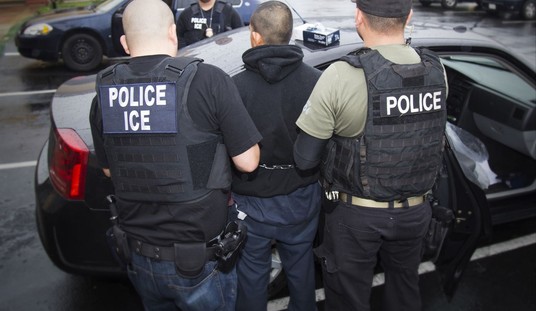It's been almost a month since United Healthcare CEO Brian Thompson was killed in New York City, when he was gunned down on the morning of December 4. The suspect who has been charged with Thompson's murder, Luigi Mangione, has gained something of a cult-like following, from young people flocking to his looks, as well as a visceral hatred of the healthcare industry. Recently, an Emerson College poll was released showing that a plurality of voters ages 18-29 found the killing "acceptable." Such disturbing findings don't look to be a onetime occurrence, though.
Such a poll was conducted December 11-13. Around that same time, the NORC at the University of Chicago conducted their poll that also included questions on Thompson's death and Mangione. Seventy-three percent of respondents said they had heard "a lot" or "some" about the killing of Thompson.
Given the opportunity to choose from a variety of options, respondents were asked, "How much responsibility do you think each of the following had for the recent killing of theUnitedHealthcare CEO, Brian Thompson?"
The most selected response when it comes to who or what had "a great deal" or "moderate amount" of responsibility was "The individual who committed the killing," with 78 percent saying so. Even still, 20 percent still said he had "only a little" responsibility, or "none at all."
Other options where a majority of respondents said there was "a great deal" or "moderate amount" of responsibility included:
Recommended
- "Denials for health care coverage by health insurance companies," 69 percent
- "Profits made by health insurance companies," 67 percent
- "Wealth or income inequality in general," 53 percent
As a write-up about the poll from the AP pointed out, "UnitedHealthcare has said Mangione was not a client."
That write-up focused on young people, with a note on how "Younger Americans are particularly likely to see the murder as the result of a confluence of forces rather than just one person’s action."
There's also an entire subheading of the write-up about such a demographic:
For young people, blame is spread equally between insurers and the killer
Americans under 30 are especially likely to think a mix of factors is to blame for Thompson’s death. They say that insurance company denials and profits are about as responsible as Thompson’s killer for his death. About 7 in 10 U.S. adults between 18 and 29 say “a great deal” or “a moderate amount” of responsibility falls on profits made by health insurance companies, denials for health care coverage by health insurance companies or the person who committed the killing.
Young people are also the least likely age group to say “a great deal” of responsibility falls on the person who committed the killing. Only about 4 in 10 say that, compared with about 6 in 10 between 30 and 59. Roughly 8 in 10 adults over 60 say that person deserves “a great deal” of responsibility.
About two-thirds of young people place at least a moderate level of blame on wealth or income inequality, in general.
People under 30 are more likely to place blame on the media, with 54% saying that compared with about one-third of older adults.
The breakdown of those young people, again ages 18-29, and how much they blame the suspect, is once more troubling. The Emerson College poll showed that 41 percent of the demographic said Thompson's death was "acceptable," while 40 percent said it was "unacceptable."
In this NORC poll, just about 40 percent say "The individual who committed the killing" bears "a great deal" of responsibility. Overall, that number is 63 percent.
The blame towards the healthcare industry in which Thompson worked is even more curious given the findings of how many respondents said they, their family, or their friends had problems with their health insurance.
Respondents were asked to choose from a variety of options about any issues or problems they might have had with their health insurance. The most common response was that Americans had "No problems with health insurance." Fifty eight percent of respondents said so about themselves, while 57 percent said so about their "immediate family" and 53 percent said so about their "close friends."
This may also be where frustrations from young people come in. As the write-up also noted:
Frustrations with health insurers, coverage and the complicated U.S. health care system have been simmering for years among patients.
About 3 in 10 Americans say they have had a problem getting coverage from their health insurer in the last year, whether those involved problems finding a suitable provider in-network, a claim getting denied or issues getting prior authorization or insurer approval before care happens. These struggles are more prevalent among Americans under 60.
The poll was conducted December 12-16 with 1,001 adults. There was a margin of error of plus or minus 4.2 percentage points.
Mangione has been charged with 11 state charges in New York, to which he pled not guilty last week. Among those charges include one count of murder in the first degree and two counts of murder in the second degree, including one count of murder in the second degree as an act of terrorism.
There seems to be strong feelings about the suspect from both sides. Recently, as Jeff covered, New York City Mayor Eric Adams confronted Mangione to his face during his perp walk. It was a move that Mangione's attorney, Karen Friedman Agnifilo slammed when it comes to how she says her client's rights, specifically the right to a fair trial, "are being violated."

























